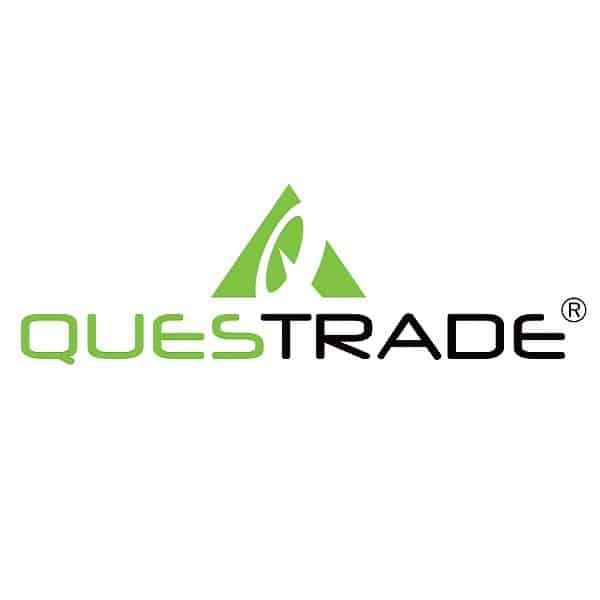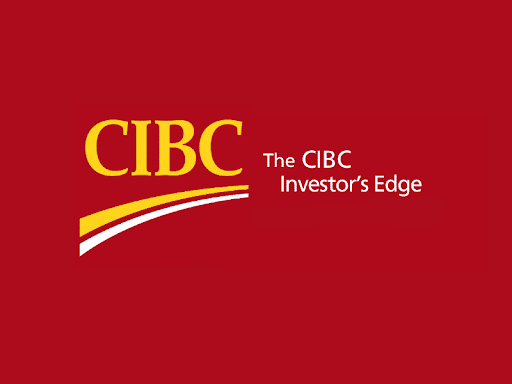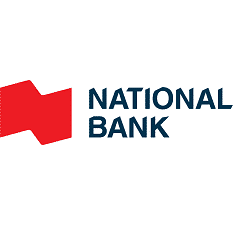Trading Options in Canada – Strategies & Leading Options Brokers
To kick off trading options in Canada, having a solid grasp of terminology and strategies is essential, plus finding trustworthy online platforms is a must. Let’s dive into the best-rated options trading sites in Canada right here.
Finding the best brokerage platform for active traders can be challenging, especially when options trading is the specific goal. The following guide will outline everything there is to know about options and seven of the best online brokerages to consider when starting your search.
What are options?
When a person purchases an options contract, they are simply buying the opportunity to buy or sell the underlying asset that the contract is structured around at a particular time and a specific price. They call options contracts derivatives, primarily because their value is derived from the underlying asset.
Unlike other derivates, such as futures, the buyer is not obligated to buy or sell that asset by the option contract’s expiration date. They could let the options expire useless and simply lose the premium they paid to buy the option.
The terminology involved with options can quickly become confusing, so reference the following for “need to know” terminology:
- Type of Option: A person can either buy or sell a call option (right to buy) or a put option (right to sell) when they choose a contract.
- Expiration Date: This is the date at which the buyer of the contract must determine whether or not they want to execute their contract, and it can be days, weeks, or even years in the future. Most options typically expire on the third Friday of the month.
- Strike Price (Exercise Price): A strike price is the price at which the buyer can buy or sell the underlying asset should they choose to execute their contract. For example, buying a call option on stock ABC with a strike price of $10 gives you the right, but not the obligation, to buy 100 shares of stock ABC at $10 a share up until the expiration date.
- Premium: The premium of an options contract is the price a buyer pays for that contract, which is calculated based on the difference between the asset’s current price and the strike price, as well as the amount of time before expiration.
With the basic terminology in place, lets move on to brokerages, and then strategies.
Finding the best online broker can be the difference between being successful and failing when it comes to options. Let’s dive into 7 of the best options trading platforms to use in Canada.
The 7 best options trading platforms in Canada
- Qtrade
- Questrade
- Interactive Brokers
- Wealthsimple Trade
- TD Direct Investing
- CIBC Investors Edge
- National Bank Direct Brokerage
Qtrade

Qtrade, or Credential Qtrade Securities Inc., is a brokerage firm based out of Vancouver, Canada. Their online investing platform Qtrade Direct Investing allows traders access to options, among other financial instruments. The primary benefit of Qtrade is that they offer educational resources designed to help platform members become DIY investors.
I would consider the commission for Qtrade the middle of the line, at $8.75 plus $1.25 per contract.
This can be further reduced to $6.95 plus $1.25 per contract if a person places more than 150trades per quarter or they have over $500,000 in assets. This platform has a $0 minimum deposit and account minimum, making it an excellent choice for beginners.
Their complete suite of tools makes it one of the no brainer selections for an investor looking to trade options. Although commissions are a bit higher, you’re getting more bang for your buck in my opinion.
Also, if you sign up through Stocktrades, you can get upwards of $150 back via the promotion they’re currently running.
You can click here to claim the offer and get started trading options today.
Questrade

The central selling point for Questrade as one of the best online brokerages for options trading is that they are the only Canadian-owned discount brokerage independent of all big banks. However, they have the same protection assurance regarding the assets investors hold, making it equally as safe.
For just $9.95 plus $1.00 per contract, Questrade is more expensive than some other platforms on this list but offers just as many, if not more, perks for investors to utilize.
Included for free with all Questrade accounts is access to options and index snap quotes, as well as real-time level 1 data streaming for stocks and ETFs that are listed on North America’s most popular exchanges. Additionally, for just $19.95 CAD per month, an investor can access up-to-the-second streaming data for Canadian and U.S. options.
If you sign up for Questrade through Stocktrades, you can get $50 for free. Just click here to claim the offer.
Interactive Brokers Canada

Interactive Brokers Canada is one of the largest online brokerages to consider on this list, with operations in over 33 countries across more than 150 markets in 26 currencies. They are listed on the Nasdaq and have around $2.05M in daily average revenue stemming from trades, which goes to show just how notable this Canadian online broker is.
The pricing for Interactive Brokers Canada is the cheapest by far, with their lowest rate starting at $1.00 per contract with volumes above 100,001.
However, Their most expensive rate is only $1.25 per contract for volumes over 10,000. There is a minimum order fee of $1.50 CAD to remember. This platform’s only downside is its steep learning curve, making it most suitable for advanced investors.
Yes, commissions are the cheapest. However, if you’re a newer investor, you may want to consider an option like Qtrade or Questrade and then migrate your accounts to Interactive Brokers when you become more comfortable.
Wealthsimple Trade

Wealthsimple Trade is a self-direct online brokerage platform offering two types of accounts: trade accounts and crypto accounts. Offering one of the sleekest platforms out of all the brokerages on this list and offering a modern, aesthetically pleasing app, Wealthsimple Trade is the best for the average investor.
Offering no account minimums and commission-free trading, Wealthsimple Trade only charges a flat rate of $2 USD per options contract every time.
The only downfall I see with Wealthsimple Trade is that options trading is relatively new on the platform, and it doesn’t have any charts or data to help you navigate the options market.
Commissions are cheap, no doubt about that. However, the functionality is very basic.
TD Direct Investing

Another excellent options trading platform in Canada to consider is TD Direct Investing. This brokerage firm offers all types of banking and investment services and is the online brokerage division of TD Waterhouse. Those looking to get started with normal investing can make free trades that have no commission, but options trading comes at a base commission of $9.99 and $1.25 per contract. This price drops to $7 if a person makes at least 150 trades per quarter.
A factor that makes TD Direct Investing stand out as one of the best online platforms is that it offers three different trading platforms for investors of all experience levels—their WebBroker platform, TD App, and Advanced Dashboard.
CIBC Investor’s Edge

This platform is a division of CIBC Investor Services Inc. which is an additional subsidiary of CIBC. Based out of Toronto, CIBC Investor’s Edge offers some of the lowest commissions in the market for options trading, making it an excellent option for those on a budget. This is one of the cheapest platforms available at just $6.95 plus $1.25 per contract for Canadian and U.S. options, with a reduction to $4.95 for those with over 150 trades per quarter.
Another major benefit of CIBC Investor’s Edge is its specialty rate for students interested in investing. For those who are over 25 and have a checking account with CIBC Smart for Students, a $5.95 plus $1.25 per contract rate can be enjoyed.
The platform lacks a solid interface and features to be considered the top options broker here in Canada. However, if you’re a stickler for commissions and having your money at a major institution, this is a very solid choice.
National Bank Direct Brokerage

Finally, the National Bank Direct Brokerage is a division of National Bank Financial Inc. (NBF) and a trademark owned by the National Bank of Canada (NBC). For options trading, investors can enjoy $0 commission plus $1.25 per contract they purchase. There is no minimum amount required when trading options on this platform. This is the best option for those looking to work with the first broker of a Canadian bank that has shifted to zero commission business model.
This is an underrated choice when it comes to an options trading platform. It doesn’t have the advanced level functionality as a platform like Interactive Brokers or TD Direct Investing. However, the fact you don’t have to pay any commission when trading options should no doubt factor into your decision as a trader.
How does options trading work?
Before diving straight into options trading, a person needs to understand how this type of trading works. At its core, options trading is simply when a buyer speculates on whether the price of an underlying asset will rise or fall and how long it will take that price action to occur.
Calls and puts
As mentioned previously, a buyer can consider two types of options contracts: calls and puts. With a call contract, you are betting that the price of an asset will rise within the projected period. A contract is typically for 100 shares, and a buyer will pay a premium to own the contract.
Options pricing
Even though a contract is for 100 shares, options contracts are often quoted in single share increments. For example, if a premium on an options contract is $0.50, it will cost you $0.50 x 100, or $50, to buy it.
Making money on a call option
If you buy a call option and your gamble pays off, the assets price will rise above the strike price, and they can exercise their contract to buy 100 shares at the strike price, then sell those shares at the current price to flip a profit. Alternatively, they could simply sell the call option contract for a profit as well.
Making money on a put option
On the other side of things, a put option works slightly differently. While a buyer will still purchase a contract of 100 shares for a premium, they are betting that the asset will fall in value. Should it fall as predicted, the buyer can exercise their put contract by purchasing 100 shares at the current market price and selling them at the higher strike price, thus making a profit. As always, they could also simply sell the put contract itself, which will have increased in value.
How the premium of a contract will be decided
The initial value of a contract, that is, the price a person pays for the 100 or more shares they have the right to exercise, will fluctuate partially depending on the contract’s timeframe. Contracts that expire soon will be cheaper as there is less time for the value of an asset to move and, thus, less risk for the contract writer. With options, however, the most a buyer of a contract stands to lose is their initial investment in the contract.
3 key considerations to focus on when trading options
Diving into the world of options to make money may seem tempting, but it’s important to remember that options trading is trickier than standard trading. To that end, there are four key considerations all traders need to keep in mind when opening brokerage accounts:
Evaluate your risk tolerance
As previously mentioned, the most a buyer of a contract stands to lose when trading options is the initial value of their contract. Due to this, a person needs to consider their risk tolerance when purchasing an options contract. While losing out on a couple hundred dollars with the potential to gain thousands can be tempting, think about how much you are willing to risk.
Consider current volatility
As a buyer of an options contract, the success of the contract will be entirely dependent on the volatility of the asset. Should an asset have next to no volatility historically, and there’s no indication that this will change anytime soon, it probably isn’t the best choice for an options contract. On that same line of thinking, an asset with a history of volatility, ideally in one direction, will be a better type of options contract.
Identify key events
Building off the prior point, many assets tend to be stable in price and only fluctuate slightly. One of the best ways to succeed with options is to identify when a key event may occur, which will cause short-term volatility in an asset’s value. To do this, try to stay on top of as many news sources as possible that may cover that asset, such as industry news, company news, press releases, and more.
The biggest mistakes to avoid when trading options
Given that options trading is all about risk-to-reward, it’s essential to learn the common mistakes people make when trading options. When just getting started on an online trading platform, keep the following common mistakes at the forefront of your mind:
- Failing to realize that volatility will end at some point
- Lack of discipline, particularly knowing when to cut your losses
- Not learning what key indicators of potential volatility look like
- Starting to trade options without having a clear strategy in place
- Choosing the wrong expiration date for your contract based on your strategy
- Attempting to make up for past losses by trading more
- Avoiding new options trading strategies because you believe yours are the only correct choice
- Equating a high-win rate to large amounts of profit
At the end of the day, despite the only risk of buying options being the loss of an initial investment, options trading is still a gamble. Therefore, never start options trading without doing adequate research and understanding your risk tolerance. Above all else, be sure that you are not only willing to lose your initial investment but that you can also afford to lose your initial investment.
In addition to this, this article did not going over selling options contracts, which pose additional risks and rewards. We’ll eventually go over that in another piece.
